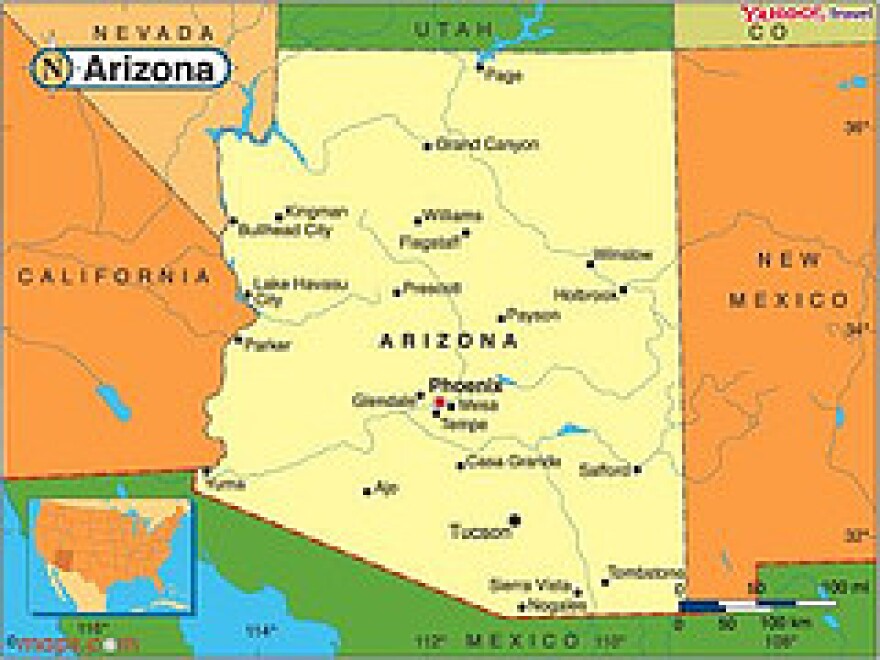Former Massachusetts Gov. Mitt Romney has won the Arizona primary.
Romney and Rick Santorum, meanwhile, are vying for supremacy in Romney's native Michigan, with early returns showing them in a close race.
With 13 percent of Michigan precincts voting, Romney with 41 percent leading Santorum with 38 percent, Ron Paul at 11 percent and Newt Gingrich with 7 percent.
Update From AP:
Mitt Romney added to his lead in the race for convention delegates Tuesday with a win in the Arizona Republican presidential primary. Romney also won the Michigan primary, but it was unclear who would win the most delegates in that state.
The former Massachusetts governor won all 29 delegates in Arizona, a rare winner-take-all state. Romney and former Pennsylvania Sen. Rick Santorum each won at least 11 delegates in Michigan, with eight delegates left to be awarded.
Texas Rep. Ron Paul and former House Speaker Newt Gingrich were shut out.
Michigan awards 28 of its 30 delegates based on results in individual congressional districts. Candidates get two delegates for each congressional district they win. The final two delegates are awarded proportionally, based on statewide results.
Results in four of the congressional districts were too close to call on election night.
In the overall race for delegates, Romney has 163 delegates, including endorsements from Republican National Committee members who automatically attend the party's national convention and can support any candidate they choose.
Santorum has 83 delegates, Gingrich has 32 and Paul has 19. It takes 1,144 delegates to win the Republican nomination for president.
Both Michigan and Arizona were penalized half their delegates for holding contests before March 6, against party rules. Arizona also broke a party rule that requires states holding contests before April to use some sort of proportional system to award delegates.
Arizona's winner-take-all format could open the state's delegation to a challenge before the party's contest committee this summer, according to the RNC. The issue could ultimately be resolved at the national convention in Tampa, Fla.
The Associated Press calculates the number of national convention delegates won by candidates in each presidential primary or caucus, based on state and national party rules. Most primaries and some caucuses are binding, meaning delegates won by the candidates are pledged to support that candidate at the national
conventions this summer.
Political parties in some states, however, use local caucuses to elect delegates to state or congressional district conventions, where national delegates are selected. In these states, the AP uses the results from local caucuses to calculate the number of national delegates each candidate will win, if the candidates maintain the
same level of support.


